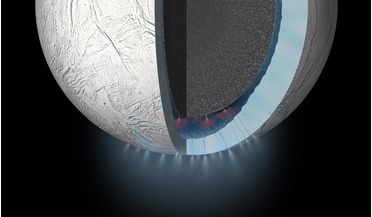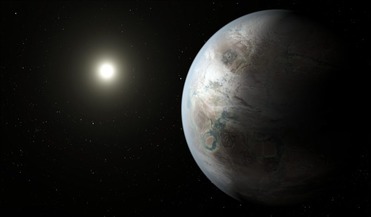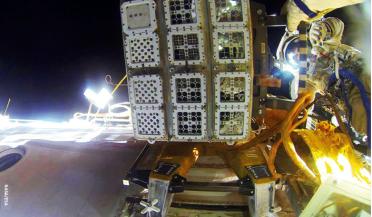 24 January 2020
New study suggests Enceladus' oceans more habitable than previously thought
24 January 2020
New study suggests Enceladus' oceans more habitable than previously thought
... ocean below Enceladus's icy exterior could harbour the ingredients for life, but last year, a new analysis of data collected by... key role in producing amino acids. Researchers had detected other organic molecules coming from the icy moon before, but...
 03 August 2018
Plate tectonics not needed for life, but UV light is
03 August 2018
Plate tectonics not needed for life, but UV light is
... least), but given enough of it, it could kick-start life on other planets by powering a series of chemical reactions that produce the building blocks of life as we know it; the same way it likely gave life on Earth a push in the right direction. The...
 02 March 2016
Using MUSCLES to test for life on other planets
02 March 2016
Using MUSCLES to test for life on other planets
... orbit and as M dwarfs make up approximately 70% of the stars in the Milky Way, the need to identify potential life-hosting planets on a large scale is evident. Taking up this task, is a team of international astronomers headed by Kevin France, who...
 November 2020
The alien hunter’s field manual
November 2020
The alien hunter’s field manual
... be used, such as detecting smoke from forest fires. Nobody knows what the first telescopes capable of detecting life on other planets are going to find Lastly, we could search for technosignatures – indications that a large-scale industrial society...
 February 2016
Space – Overcoming Our Limitations
February 2016
Space – Overcoming Our Limitations
... rarely discussed in the space science community. As we continue our efforts in search of life on other planets, we scarcely ever consider the possibility that life on other planets is a matter of time rather than location. And yet, we may very well...
 September 2023
How microorganisms survive space travel
September 2023
How microorganisms survive space travel
... of preserving the viability of various organisms during a long interplanetary flight and the search for life on other planets. The Biorisk experiment The Russian State Research Centre, Institute of Biomedical Problems of the Russian Academy...